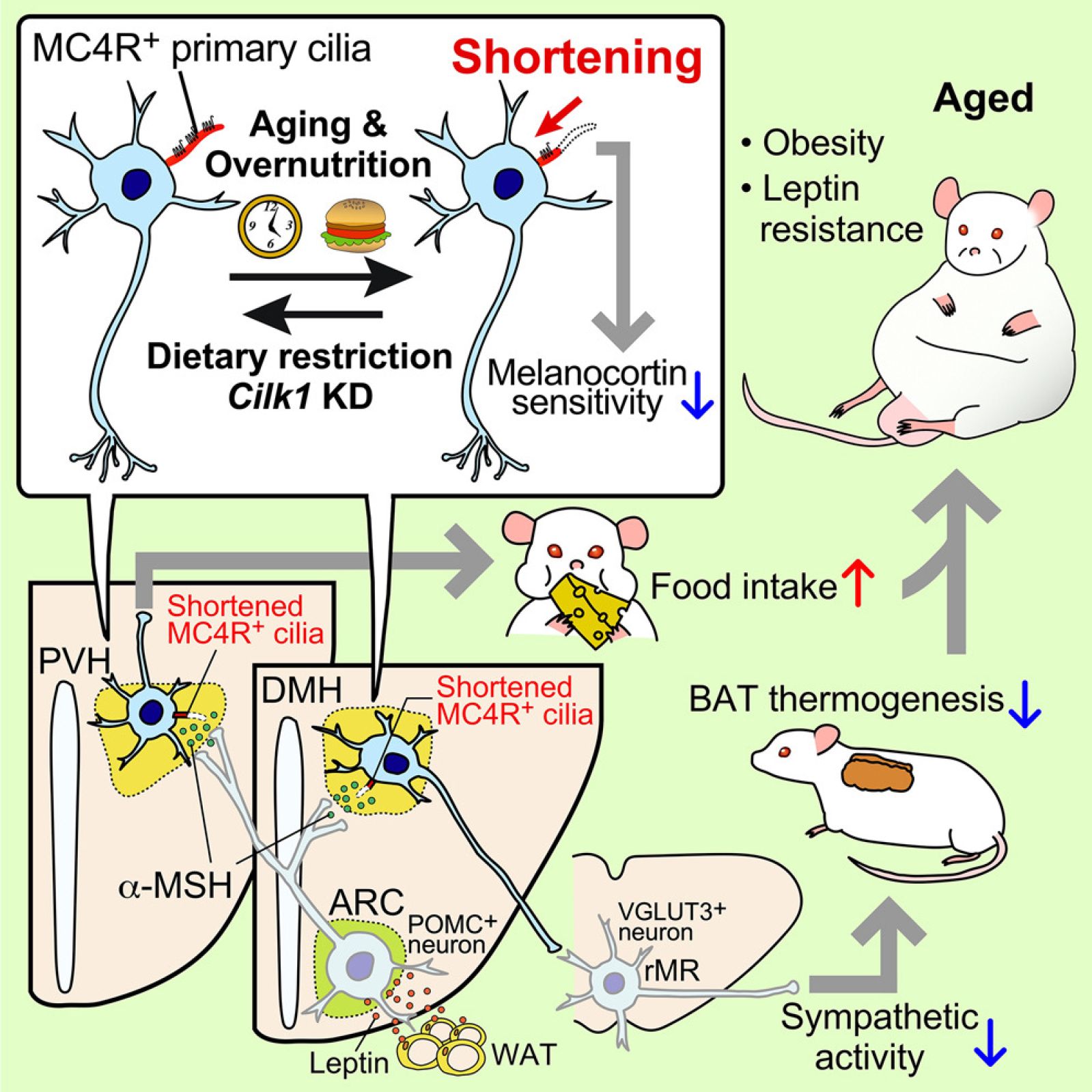Late-onset obesity could be caused by these changes in the brain
Follow us on Google News (click on ☆)
Their study focuses on a specific region of the brain, the hypothalamus, which plays a key role in regulating metabolism and appetite. They identified a link between obesity and the shortening of primary cilia, antenna-like structures, on the neurons of the hypothalamus.

A key player in this regulatory role is a protein, the melanocortin-4 receptor (MC4R), which detects overeating to regulate metabolism and suppress appetite, thereby preventing obesity. However, with age, these primary cilia carrying MC4Rs shorten, reducing their number and impairing weight regulation function. This discovery could pave the way for new fundamental treatments against obesity.
The researchers also explored the impact of different diets on the length of these primary cilia. They found that, under a normal diet, the cilia gradually shorten with age. A high-fat diet speeds up this process, while a restricted diet slows it down. Moreover, they discovered that dietary restriction can even regenerate these primary cilia that had disappeared with age.
This study also addressed the issue of leptin resistance, a hormone supposed to reduce appetite, which turns out to be ineffective in rats with shortened primary cilia, a phenomenon also observed in obese patients. This indicates that age-related shortening of primary cilia could be a cause of obesity and leptin resistance in rats, highlighting the importance of a moderate diet in maintaining the brain's anti-obesity system in good condition with age.

Shortening of MC4R+ primary cilia in the brain's hypothalamus leads to obesity in middle-aged individuals.
These findings offer a new perspective on how age-related structural changes in the brain can influence metabolism and appetite, thus opening new avenues for the prevention and treatment of obesity.